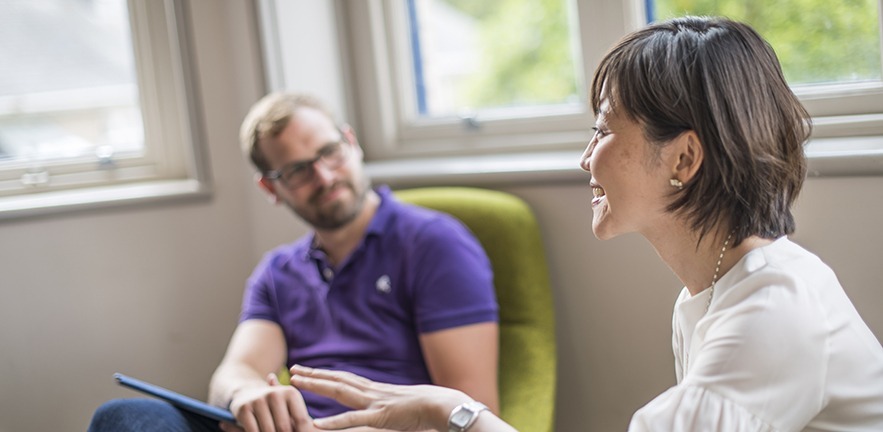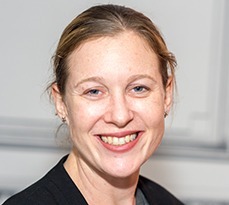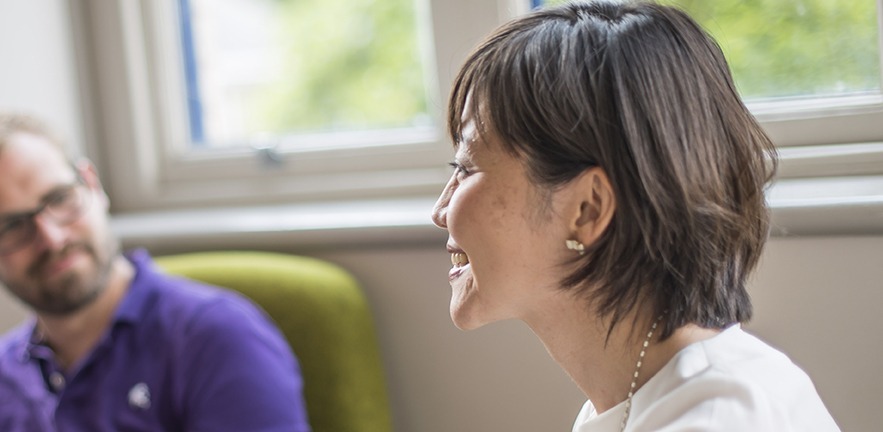We join Kate Wendelboe (MBA 2011) as she shares a career journey in broadcasting and beyond, as well as her experience of women in leadership and mentoring programmes across this ever-changing sector.

“I started my career in marketing, working for Reuters, and then moved into multimedia journalism.”
“For me it was all about the transferable skills, I had been organising a lot of live events and this transferred easily into producing live television – my second career if you like.”

Throughout this time Kate became increasingly interested in the strategy and management behind running a business. “This is what prompted me to do an MBA at Cambridge.”
“My passions were in culture and management and what the Cambridge MBA Concentration offered in Culture, Arts and Management was exactly what I was looking for.”
BT were running a Fast Track Leadership programme at the time Kate graduated from Cambridge and this was a great way for her to put her MBA skills into practice, while rotating around the business gaining skills and experience across the many areas and sectors across BT.
“My career ‘road map’ if you like has been from consultancy to strategy to business development roles and one of the strategy roles within that fast track programme was with Media and Broadcast. When the role of Director of the business came up – that was the role for me,” Kate continues.
On connectivity
When she was BT Director of Media and Broadcast, Kate sat at the helm of the business that is all about selling connectivity specifically for live video, managing over 150 venues around the UK, including all the Premier League football stadiums, and running broadcast networks for the likes of the BBC and ITV in the UK.
“Connectivity is what we are all talking about, which becomes even more relevant and interesting as we build the 5G landscape.
“As the media and broadcasting industry constantly changes in response to new technology, as well as global demands and needs, the challenge was and continues to be about relevance.
“How do we remain relevant to this changing industry where consumers are changing their consumption patterns and where traditional broadcasters are having to be very dynamic to change their commercial models.”
New directions – RISE for women
Kate has, more recently, taken a position as Advisory Board Member and Mentor for RISE – a group for women in broadcast. As an organisation that supports women in the broadcasting industry, RISE has been supporting women particularly on the technology side of the broadcast industry.
“What makes the organisation so powerful is the number of different companies involved in supporting it. RISE offer a networking body, a recently launched award scheme and we are in the second year of running the mentoring scheme, with about 22 mentor-mentee relationships ongoing.
“Speaking to those involved across the spectrum, both mentors and mentees think the fact that you can have an open discussion outside of your own company is enormously useful and this is what makes it so powerful.
“It offers a chance to step outside of your particular bubble.
“That’s where I think effective mentor relationships can really help people at different stages of their careers. It can push their thinking and push them to think in different ways and it can support them to build up their confidence not only in their own company but in the industry as a whole.
“For me personally the enthusiasm and energy of the mentees themselves is incredibly inspirational and it is also incredibly useful to hear about different parts of the industry value chain and the different opportunities and challenges that people are experiencing across the board in the broadcast industry.”
Reverse mentoring
Kate continues to explain about reverse mentoring and how this aspect of mentoring has been so useful in her own career journey. Reverse mentoring is when someone in a senior leadership position is mentored by someone at an earlier stage in their careers.
“I am also big fan of reverse mentoring. It offers a fresh perspective and it challenges you and I use it in particular around communications – how are they coming across, what people want to hear about on the team, and also a different perspective on a specific media platform for example that I might not have thought of or viewed it that way myself?
“Mentoring is an incredibly powerful way to support women across an organisation because the networking they get, the training and the support they get is enormously valuable.”
The career road map
Navigating her career choices Kate explains that taking a few ‘big bets’ and throwing in a few ‘curve balls’ has taught her to manage the shifting landscape of broadcasting successfully. “Taking a strategy role in BT at the time and looking at some of the smaller businesses within the BT umbrella was incredibly useful to me, in growing and developing my career. If you step outside of the industry sector you are more naturally drawn to, then you can learn an awful lot.”
Kate suggests that if you follow your gut instinct your career journey will be ultimately more rewarding – “take on the challenges that you find interesting, if you are really interested in that role and your career, you have to keep that interest going and that will keep your career compass aligned”.


